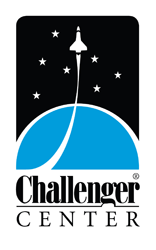Gifted education is a sort of education used for children who have been identified as gifted or talented.

The No Child Left Behind Act of 2001 (NCLB) was a 2002 U.S. Act of Congress promoted by the presidency of George W. Bush. It reauthorized the Elementary and Secondary Education Act and included Title I provisions applying to disadvantaged students. It mandated standards-based education reform based on the premise that setting high standards and establishing measurable goals could improve individual outcomes in education. To receive federal school funding, states had to create and give assessments to all students at select grade levels.
Achievement gaps in the United States are observed, persistent disparities in measures of educational performance among subgroups of U.S. students, especially groups defined by socioeconomic status (SES), race/ethnicity and gender. The achievement gap can be observed through a variety of measures, including standardized test scores, grade point average, dropout rates, college enrollment, and college completion rates. The gap in achievement between lower income students and higher income students exists in all nations and it has been studied extensively in the U.S. and other countries, including the U.K. Various other gaps between groups exist around the globe as well.
Mathematics, Engineering, Science Achievement (MESA) is an academic preparation program for pre-college, community college and university-level students. Established in 1970 in California, the program provides academic support to students from educationally disadvantaged backgrounds throughout the education pathway so they will excel in math and science and ultimately attain four-year degrees in science, technology, engineering or math (STEM) fields. The program has successfully been replicated in over a dozen other states.

Science, technology, engineering, and mathematics (STEM) is an umbrella term used to group together the distinct but related technical disciplines of science, technology, engineering, and mathematics. The term is typically used in the context of education policy or curriculum choices in schools. It has implications for workforce development, national security concerns, and immigration policy, with regard to admitting foreign students and tech workers.
Houston A+ Challenge, now Texas A+ Challenge, is a not-for-profit public-private partnership based in Houston, Texas.

Challenger Center for Space Science Education is a United States 501(c)(3) non-profit organization headquartered in Washington, DC. It was founded in 1986 by the families of the astronauts who died in the Space Shuttle Challenger disaster on January 28, 1986.
Sara Martinez Tucker is a former chief executive officer of the National Math and Science Initiative. She was formerly the Under Secretary of Education at the U.S. Department of Education and a former president and chief executive officer of the Hispanic Scholarship Fund (HSF).
The Marine Corps Scholarship Foundation is a privately funded, 501(c)(3) non-profit organization that provides academic scholarships to children of United States Marines and Navy Corpsmen. The Scholarship Foundation is the Nation's oldest and largest provider of need-based scholarship to military children. Their funding is provided by private supporters, including individuals, corporations, and other nonprofit foundations. The organization's mission is to "Honor Marines by Educating Their Children."
The Academy of Medicine, Engineering & Science of Texas (TAMEST) is a not-for-profit interdisciplinary scientific organization, whose membership consists of all Texas-based members of the three national academies, including ten Nobel laureates.
Reasoning Mind is a non-profit organization that develops computer-based math curricula and works with schools to implement them in classrooms. In addition, Reasoning Mind provides professional development to teachers using the program. The organization works closely with partner schools to help them achieve a successful implementation. Reasoning Mind uses Instruction Modeling and the Baker Rodrigo Ocumpaugh Monitoring Protocol as core components of its research and development process.

The Federal TRIO Programs are federal outreach and student services programs in the United States designed to identify and provide services for individuals from disadvantaged backgrounds. They are administered, funded, and implemented by the United States Department of Education. TRIO includes eight programs targeted to serve and assist low-income individuals, first-generation college students, and individuals with disabilities to progress through the academic pipeline from middle school to post-baccalaureate programs. TRIO also includes a training program for directors and staff of TRIO projects. Their existence is owed to the passing of the Higher Education Act of 1965.
Citizen Schools is an American nonprofit organization that partners with middle schools across the United States to expand the learning day for children in low-income communities. Its stated mission is "educating children and strengthening communities". Currently, Citizen Schools serves over 5,000 students and recruits over 4,280 volunteers over 31 program sites in 13 cities across 7 states. The center pieces of the Citizen Schools model are its apprenticeship programs run by volunteers that culminate in public demonstrations called WOW!s, and partnering with some middle schools to expand learning time for students. Citizen Schools offers the AmeriCorps National Teaching Fellowship providing a 2-year paid service opportunity for citizens interested in using their personal talents to enhance life opportunities for middle school students. Fellows in their second year can participate in a residency program operated by one of three university partners to obtain teacher certification in California, Massachusetts and New York. In honor of its 20 anniversary in 2015, Citizen Schools honored 20 alumni of the Fellowship who continue to make a profound impact in the community today.
Mathematics and Science Partnerships (MSP) is education policy from Title 2, Part B, Sections 2201-2203 of the No Child Left Behind Act of 2001. The purpose of MSP is to increase student achievement in science and mathematics by partnering IHE science, math, and engineering departments with elementary and secondary science and math teachers in high-need local educational agencies (LEAs) in order to develop teachers' content knowledge and instructional performance. SEAs may apply for competitive grants and then IHEs and LEAs may apply for a subgrant of the SEA.
Project SEED is a mathematics education program which worked in urban school districts across the United States. Project SEED is a nonprofit organization that worked in partnership with school districts, universities, foundations, and corporations to teach advanced mathematics to elementary and middle school students as a supplement to their regular math instruction. Project SEED also provides professional development for classroom teachers. Founded in 1963 by William F. Johntz, its primary goal is to use mathematics to increase the educational options of low-achieving, at-risk students.
STEAM education is an approach to teaching STEM subjects that incorporates artistic skills like creative thinking and design. The name derives from the acronym STEM, with an A added to stand for arts. STEAM programs aim to teach students innovation, to think critically, and to use engineering or technology in imaginative designs or creative approaches to real-world problems while building on students' mathematics and science base.

The STEM Education Act of 2014 is a bill that would add computer science to the definition of STEM fields used by the United States federal government in determining grants and education funding. It would open up some training programs to teachers pursuing their master's degrees, not just teachers who had already earned one.
ACT, Inc. is an American for-profit company primarily known for the ACT, a standardized test designed to assess high school students' academic achievement and college readiness. It was announced in April 2024 that the company, previously a 501(c)(3) nonprofit organization, had been purchased by the private equity firm Nexus Capital, raising concerns about transparency and accountability.
Silicon Valley Education Foundation (SVEF) is a non-profit organization serving Silicon Valley. Headquartered in San Jose, California, the SVEF creates resources and programs for students and educators in Silicon Valley in Science, technology, engineering, and mathematics (STEM) fields.
Thomas W. Luce III is an American lawyer, government official, non-profit executive, and former advisor to H. Ross Perot. He is CEO of Biotech Initiatives at Lyda Hill Philanthropies.



